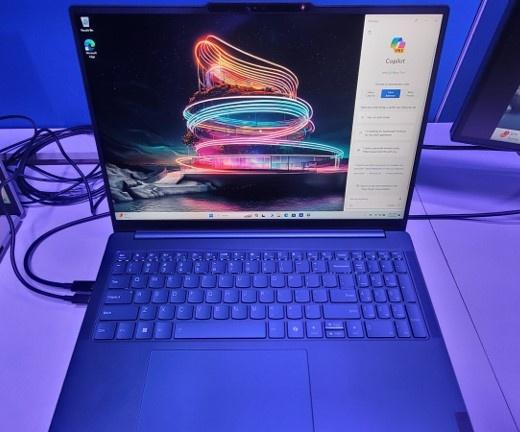The concept of AI PCs has been in development for several years, but gained significant attention in late 2023 with the release of new processors with enhanced AI capabilities and Microsoft’s push to integrate Copilot into every PC. However, creating an intelligent PC goes beyond simply running neural network models – it also involves making the PC contextually aware of its environment and users. This requires the use of sensors, network information, user data, and low-power processing that can be always on and constantly adapting. Field Programmable Gate Arrays (FPGAs) are playing a key role in leveraging these capabilities.
Context awareness, or the ability to understand and adapt to a given environment at a given time, is a relatively new but crucial aspect for electronic devices. PC OEMs and technology providers have been developing AI technology that utilizes image sensors for increased security, such as human detection, facial recognition, and attention sensing. An intelligent PC should be able to adjust security levels, network access, and environmental factors based on the user’s location and preferences.
Sensors play a vital role in providing the necessary data for context awareness in PCs, especially in mobile devices. Lattice Semiconductor, in collaboration with leading PC OEMs, is utilizing low-power FPGAs for vision processing and sensor processing. The Lattice CrossLink-NX family offers a combination of processing capabilities, DSP for matrix multiplication, on-chip memory, and a flexible FPGA fabric for I/O configurations. These devices can be always powered on, drawing minimal power while offloading sensor processing from the host processor.
The sensor information gathered can be used to enhance user experience, improve system efficiency, and increase security. For example, sensors can automatically adjust display brightness based on user behavior, detect when the user is falling asleep, or monitor for unauthorized individuals nearby. By leveraging sensor data, PCs can provide a more personalized and secure computing experience while conserving power and optimizing performance.
FPGAs are playing a crucial role in enabling the latest AI and intelligence developments in electronic platforms. These flexible and adaptable chips are cost and power efficient solutions for enhancing the intelligence of PCs and other devices. With the focus on small, low-power form factors with increased performance and functionality, FPGAs are becoming integral components in creating more intelligent electronic platforms.
Overall, the integration of AI, sensors, and FPGAs is transforming the way PCs interact with users and their environments. As technology continues to advance, the possibilities for intelligent PCs are endless. By combining cutting-edge technologies with innovative applications, the future of computing looks brighter and more intelligent than ever before.


